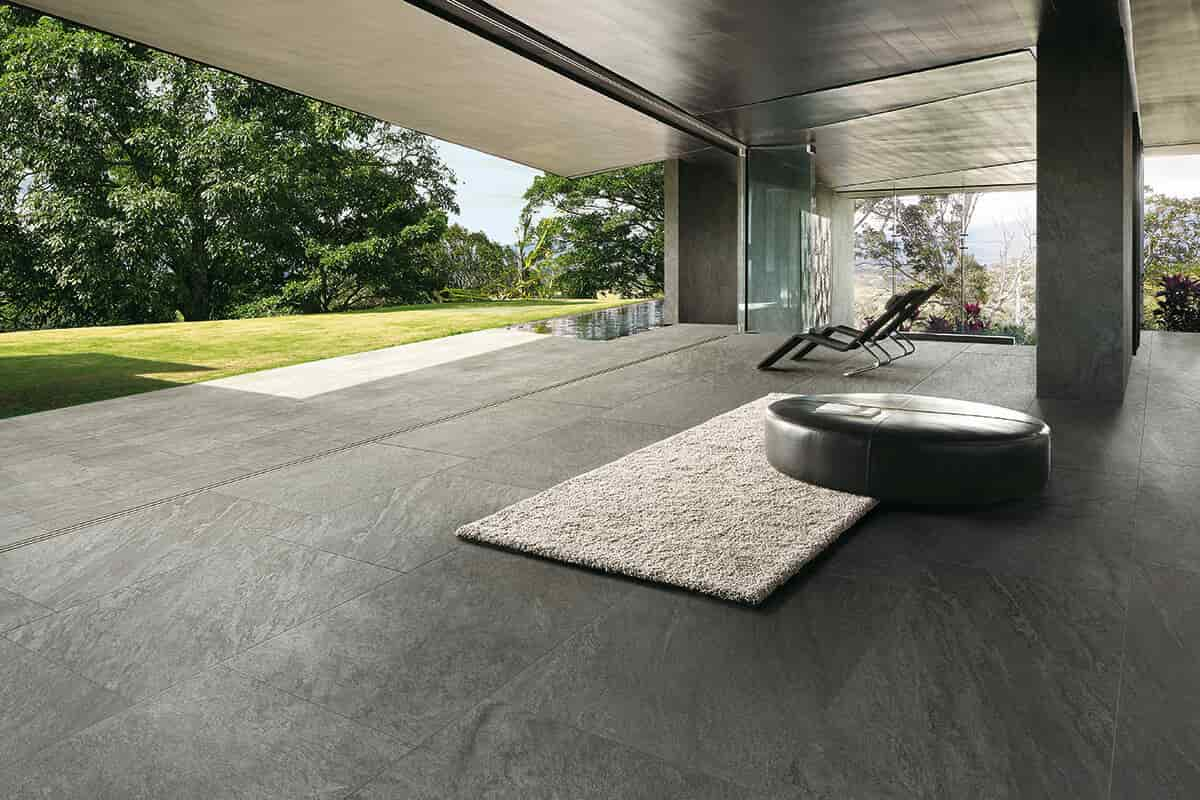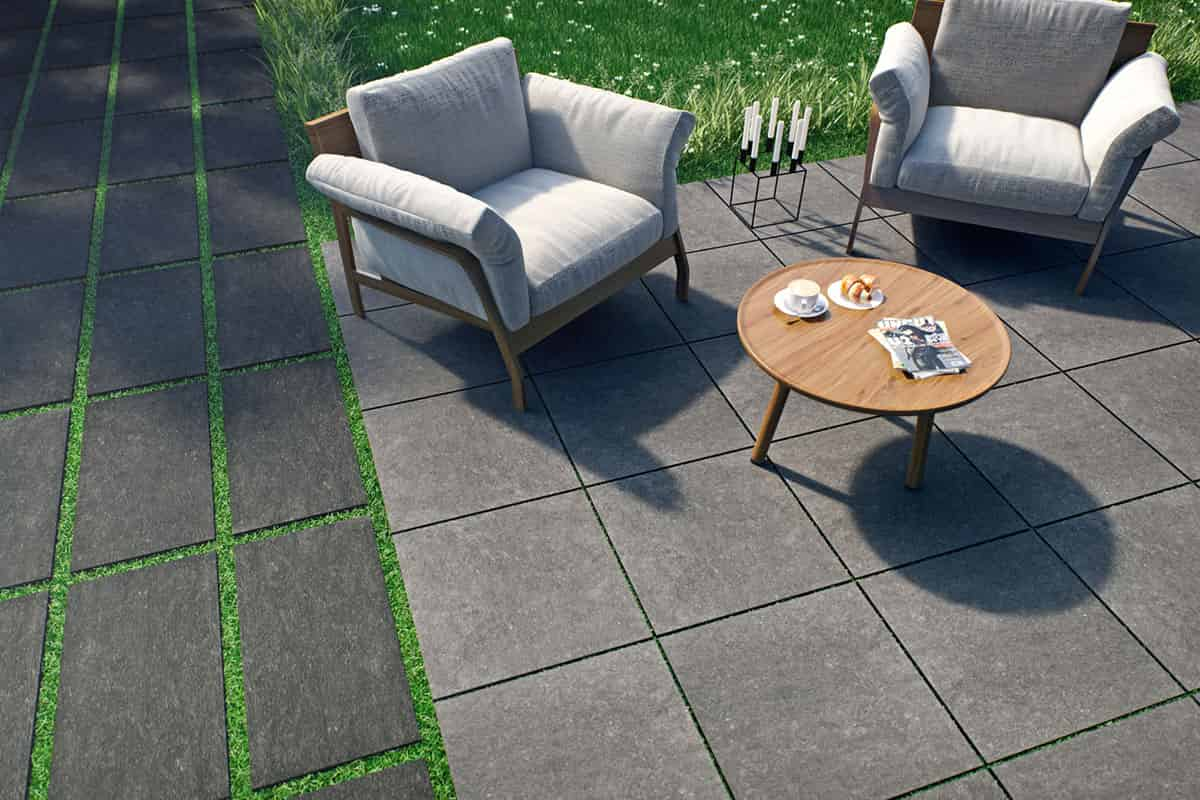The notion that glazed porcelain tiles are often shiny is pervasive. Glazed tiles are available in a vast array of hues, patterns, and styles, suitable for outdoor and indoor application, whereas unglazed tiles typically have a more rustic, earthy appearance. In actuality, the phrase "glazed" refers to the substance used to cover tiles, which is often liquid glass or enamel, and not their finish. It is essential to remember that glazed tiles can have either a glossy or matte surface, therefore the lack of a glossy finish on a tile does not necessarily imply that it is unglazed. Each surface material offers unique features that may aid you in your search for the perfect match. These are the advantages of glazed tiles: Despite exposure to conditions such as direct sunlight, the color of glazed tiles endures. The coating resists the fading of colors and patterns over time. Glazed tiles have a smooth, impermeable surface that is easily cleaned with warm, soapy water and a microfiber cloth. Due to their lack of porosity, glazed tiles are particularly resistant to absorbing or acquiring stains.  Due to their coating, glazed tiles are naturally scratch-resistant, making them suitable for high-traffic areas. Glazed tiles are more delicate than unglazed tiles because they are thinner and less dense, which can contribute to a more muted, beautiful appearance (light glazes are typically harder than dark glazes). If you choose porous tiles, there will be problems with mold and mildew growth underneath. Water that penetrates the grout or the tile can also discolor and contaminate it. Because porous tiles can absorb moisture, they will crack in the winter when the water freezes. Whenever feasible, purchase "vitreous," "frost-free," "freeze-thaw stable," or "impervious" tiles. Examine the label on the packaging to determine whether the tile maker provides a freezing warranty. You have two options when installing a floor outdoors: tile directly over the existing surface, or remove the existing surface and begin a new installation. The floor must be leveled regardless of the path chosen. The easiest task is to tile over an existing system, albeit this may not be possible. The condition of the existing foundation or floor is essential to the success of an outdoor tiling project. You need a flat surface to ensure the stability of your new tile installation. Before beginning to tile a reconditioned floor, make sure to sand down any raised areas and achieve a fully smooth surface. It applies to brand-new construction as well.
Due to their coating, glazed tiles are naturally scratch-resistant, making them suitable for high-traffic areas. Glazed tiles are more delicate than unglazed tiles because they are thinner and less dense, which can contribute to a more muted, beautiful appearance (light glazes are typically harder than dark glazes). If you choose porous tiles, there will be problems with mold and mildew growth underneath. Water that penetrates the grout or the tile can also discolor and contaminate it. Because porous tiles can absorb moisture, they will crack in the winter when the water freezes. Whenever feasible, purchase "vitreous," "frost-free," "freeze-thaw stable," or "impervious" tiles. Examine the label on the packaging to determine whether the tile maker provides a freezing warranty. You have two options when installing a floor outdoors: tile directly over the existing surface, or remove the existing surface and begin a new installation. The floor must be leveled regardless of the path chosen. The easiest task is to tile over an existing system, albeit this may not be possible. The condition of the existing foundation or floor is essential to the success of an outdoor tiling project. You need a flat surface to ensure the stability of your new tile installation. Before beginning to tile a reconditioned floor, make sure to sand down any raised areas and achieve a fully smooth surface. It applies to brand-new construction as well.  When building from scratch, a self-leveling material can be used to create the floor's foundation. We recommend utilizing the Weber floor flex self-leveling product. When constructing an outdoor patio, the surface must be waterproof. When water seeps through the tiles of your floor, mold can form and cause stains. When the water beneath your tiles freezes, they will subsequently shift and begin to crack. What a waste it would be to spend so much money on a new floor for it to crumble beneath your feet. The separation membranes are sandwiched between layers of a thin-set adhesive. The majority of adhesives contain a water-repellent and mold-inhibiting latex component. Numerous homeowners frequently select outside tiles or outdoor tiles. In addition to being commonly used for patios, they can also be used for porches, decks, pathways, terraces, pools, fountains, and property boundaries. They are typically selected because their advantages over other building materials outweigh any potential disadvantages. Outdoor tiles are superior to other outdoor materials in terms of durability, safety, chemical resistance, hygiene, elegance, diversity, and price. Ceramic, porcelain, and even mosaic tiles are resilient because they have a low absorption rate and can endure moisture. As a result, water cannot enter the tile, preventing tile deterioration.
When building from scratch, a self-leveling material can be used to create the floor's foundation. We recommend utilizing the Weber floor flex self-leveling product. When constructing an outdoor patio, the surface must be waterproof. When water seeps through the tiles of your floor, mold can form and cause stains. When the water beneath your tiles freezes, they will subsequently shift and begin to crack. What a waste it would be to spend so much money on a new floor for it to crumble beneath your feet. The separation membranes are sandwiched between layers of a thin-set adhesive. The majority of adhesives contain a water-repellent and mold-inhibiting latex component. Numerous homeowners frequently select outside tiles or outdoor tiles. In addition to being commonly used for patios, they can also be used for porches, decks, pathways, terraces, pools, fountains, and property boundaries. They are typically selected because their advantages over other building materials outweigh any potential disadvantages. Outdoor tiles are superior to other outdoor materials in terms of durability, safety, chemical resistance, hygiene, elegance, diversity, and price. Ceramic, porcelain, and even mosaic tiles are resilient because they have a low absorption rate and can endure moisture. As a result, water cannot enter the tile, preventing tile deterioration.  In addition, this prevents them from cracking due to freezing, making them ideal for extremely cold conditions. Typically, they have a longer lifespan than other materials. This is especially true for porcelain tiles with a whole body, whose color pervades the entire width of the tile and hence does not fade quickly. However, porcelain tiles, which are made from finer white clay, are more durable and so more suited to withstand fluctuating outside weather conditions. The absence of chemically active materials in outdoor tiles prevents the growth of bacteria, fungi, mildew, and viruses. The majority of individuals believe that "glazed" indicates the tile's surface or texture. However, that is not the case. In reality, glazed porcelain tiles are identified by their materials, not their texture. It is the substance applied as a coating to the tiles. The substance could be anything from glass to the enamel. Glazed porcelain tiles are thinner, have a greater shine, and undergo an additional fire process to create an additional coating layer compared to unglazed porcelain tiles. Let's now analyze the six characteristics of glazed porcelain tiles. As with all other types of porcelain tiles, glazed porcelain tiles are exceptionally durable. These tiles have a distinct personality since they are crafted from the finest materials, such as kaolin clay, and undergo multiple manufacturing processes.
In addition, this prevents them from cracking due to freezing, making them ideal for extremely cold conditions. Typically, they have a longer lifespan than other materials. This is especially true for porcelain tiles with a whole body, whose color pervades the entire width of the tile and hence does not fade quickly. However, porcelain tiles, which are made from finer white clay, are more durable and so more suited to withstand fluctuating outside weather conditions. The absence of chemically active materials in outdoor tiles prevents the growth of bacteria, fungi, mildew, and viruses. The majority of individuals believe that "glazed" indicates the tile's surface or texture. However, that is not the case. In reality, glazed porcelain tiles are identified by their materials, not their texture. It is the substance applied as a coating to the tiles. The substance could be anything from glass to the enamel. Glazed porcelain tiles are thinner, have a greater shine, and undergo an additional fire process to create an additional coating layer compared to unglazed porcelain tiles. Let's now analyze the six characteristics of glazed porcelain tiles. As with all other types of porcelain tiles, glazed porcelain tiles are exceptionally durable. These tiles have a distinct personality since they are crafted from the finest materials, such as kaolin clay, and undergo multiple manufacturing processes.  Due to the tiles' outstanding resilience, they can be utilized in a number of settings. Glazed porcelain tiles can be used indoors, outdoors, and in commercial environments. High durability also ensures a longer lifespan, which saves you money on maintenance and other recurrent expenditures. Overall, it strengthens your property at a lower cost. Glazed tiles are available in a wide range of colors and patterns. Because there are so many alternatives, every customer's needs can be met, and they can choose the glazed porcelain tiles that best complement the motif of their home or business. In addition to enhancing the appearance of your room's walls and floors, high-gloss tiles can also convey grandeur, sophistication, and originality. These tiles are available in a variety of shapes and sizes, including 300X600mm, 600X600mm, and 600X1200mm, as well as 300X600mm, 600X600mm, and 600X1200mm. There will be no color, pattern, or size compromises when selecting glazed porcelain tiles. The following are the six benefits of glazed porcelain tiles: As can be seen, each advantage increases the value of these tiles. Glazed porcelain tiles provide everything: durability, excellence, beauty, and size. If you choose to purchase tiles for your home, glazed porcelain tiles are the greatest alternative.
Due to the tiles' outstanding resilience, they can be utilized in a number of settings. Glazed porcelain tiles can be used indoors, outdoors, and in commercial environments. High durability also ensures a longer lifespan, which saves you money on maintenance and other recurrent expenditures. Overall, it strengthens your property at a lower cost. Glazed tiles are available in a wide range of colors and patterns. Because there are so many alternatives, every customer's needs can be met, and they can choose the glazed porcelain tiles that best complement the motif of their home or business. In addition to enhancing the appearance of your room's walls and floors, high-gloss tiles can also convey grandeur, sophistication, and originality. These tiles are available in a variety of shapes and sizes, including 300X600mm, 600X600mm, and 600X1200mm, as well as 300X600mm, 600X600mm, and 600X1200mm. There will be no color, pattern, or size compromises when selecting glazed porcelain tiles. The following are the six benefits of glazed porcelain tiles: As can be seen, each advantage increases the value of these tiles. Glazed porcelain tiles provide everything: durability, excellence, beauty, and size. If you choose to purchase tiles for your home, glazed porcelain tiles are the greatest alternative.  Ceramic patio tiles, for instance, are resistant to fire, frost, and extremely hot and cold temperatures. Rubber tiles, on the other hand, are only resistant to milder kinds of heat, such as cigarette burns. Because ceramic and porcelain tiles are glazed or coated with liquid glass to prevent stains and facilitate cleaning, they are easy to maintain. Glazed tiles can be used for walls, pools, and fountains, but outdoor settings require unglazed floor tiles with a more textured surface to prevent slipping. Due to their increased resistance to stains, rubber tiles require less maintenance. A wide variety of glazed and unglazed porcelain tiles are available in our company, contact our sales managers for more information.
Ceramic patio tiles, for instance, are resistant to fire, frost, and extremely hot and cold temperatures. Rubber tiles, on the other hand, are only resistant to milder kinds of heat, such as cigarette burns. Because ceramic and porcelain tiles are glazed or coated with liquid glass to prevent stains and facilitate cleaning, they are easy to maintain. Glazed tiles can be used for walls, pools, and fountains, but outdoor settings require unglazed floor tiles with a more textured surface to prevent slipping. Due to their increased resistance to stains, rubber tiles require less maintenance. A wide variety of glazed and unglazed porcelain tiles are available in our company, contact our sales managers for more information.
💰 Tenfold your income 💎
